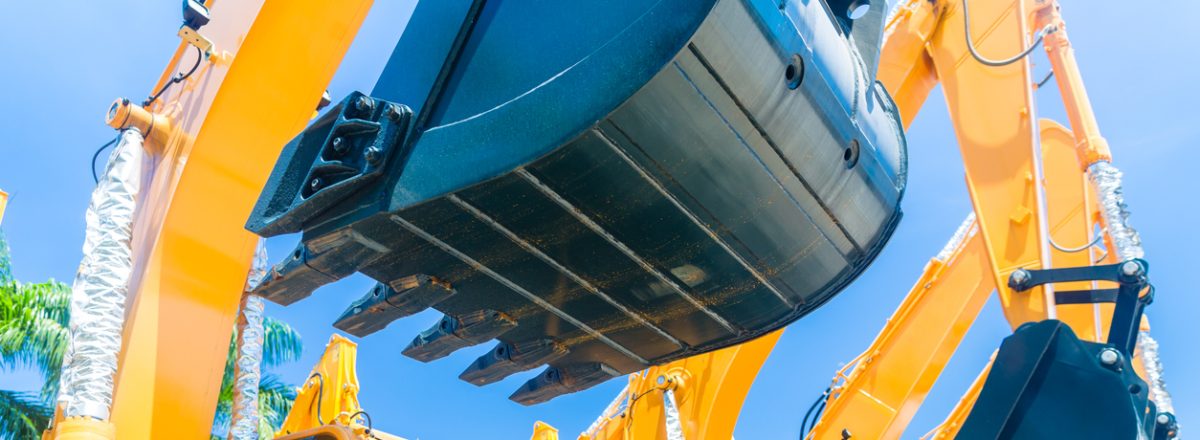Collaboration Is Key: Building Departments


If there is anything more damaging to contractors then idle equipment on a construction site, perhaps, as experts point out, it is a tendency to somehow ignore the problem. Let’s remember, failure to monitor the use of equipment results in increased costs and loss of work.
The Full Cost of Idle Equipment
Gary Bartecki of GB Financial Services encourages contractors to keep an active eye on equipment use—or disuse—and reminds us that idle equipment is associated with a long list of negative business outcomes, including:
- You have ownership costs assigned to the job in question.
- You have operating costs to assigned to the job.
- You have pick-up and delivery costs for moving the unit,
- You insure it.
- You store it on a piece of property you own.
- If you rent unit, you are not getting your money’s worth.
- If leased, you are paying for estimated monthly usage each and every month.
- Sitting idle sets you up for damages (you will have to pay for) as well as theft.
Beyond this extensive list of negative results that pile up while equipment sits idle, there are still other costs, which though less tangible, may be even more damaging to contractors. For example, there is a cost to reputation: “People in the business would probably think you don’t know what you are doing or at the very least manage jobs poorly.” Then too, there are likely unnecessary labor costs associated with idle equipment. As Bartecki puts it: “Where are the field personnel on this job? How about the superintendent? Their job is getting charged for the use of that idle unit, which apparently is not being used productively. On a tight job that unit sitting there could make the difference between profit and loss. And it is a real loss, since that unit could be generating revenue at another job.”
Toward ever more success as a contractor, don’t neglect monitoring the productivity of equipment. Use the data to make adjustments—promptly. Afterall, common sense reminds us that in the contracting business: “The more billable hours you can get out of a machine, the more money you make, the sooner you will complete the job and the faster you move on to the next job, and in the end, your annual sales are higher than expected.” Successful owners also know that with great help they can win more work. That’s why they come to Colonial for The Partnership Account® for Contractors. Once qualified, contractors position their companies to win with:
- a surety line of credit—in writing;
- a private digital dashboard;
- a daily snapshot of single and aggregate limits
- the ability to update work on hand—and increase your aggregate.
In addition to all this, Colonial gives you power of attorney to issue your own bid bonds. With The Partnership Account® on your side, you’ll win more work then ever. Get growing today:
Pre-qualify for The Partnership Account® Today
Renting Equipment?
Identifying the right equipment at the right price is always a big decision for contractors, and in uncertain economic times making the right choice is even more stressful. On the otherhand, who wants to be unprepared for new projects, especially as publicly funded builds are on the rise? These days, when making equipment decisions, experts say: “CapEx expenditures need to be carefully considered before you sign your name to the contract. You may want to ask the rental companies you use to rent you one of these new products to see how it works before you commit to a purchase. Or, you may want to rent until the pricing comes down to more realistic prices….”
When renting equipment, don’t forget to make your expectations clear, as Bartecki suggests: “These days, I would expect a rental company to notify you when your current rental contract is ending or, by using their telematics, notify you that the unit is not being used….Both the rental company and contractor should know when they need to return a rental unit.” Colonial Surety is here to help you succeed too, via the complimentary services of The Partnership Account® for Contractors. Once qualified, you will use our powers of attorney to issue your own bid bond—and you can do so right up to the last moment you need it. With Colonial, owners also have a private digital dashboard, providing a day to day snapshot of single and aggregate limits, as well as current and available bond capacity. As work in progress decreases, work on hand can be updated.
Let’s get you growing today: The Partnership Account®.
Founded in 1930, Colonial Surety Company is a leading direct seller and writer of surety bonds and insurance products across the USA. Colonial is rated “A Excellent” by A.M. Best Company and U.S. Treasury listed.

